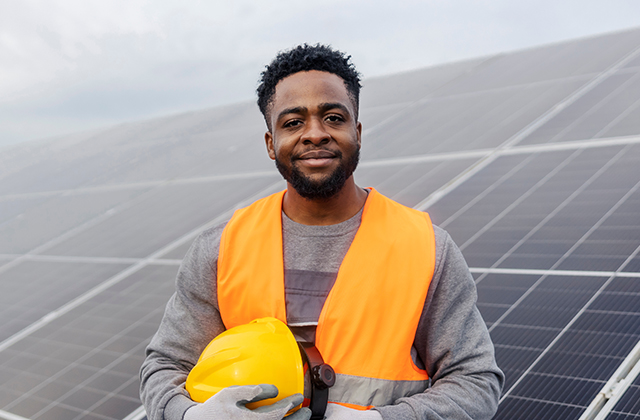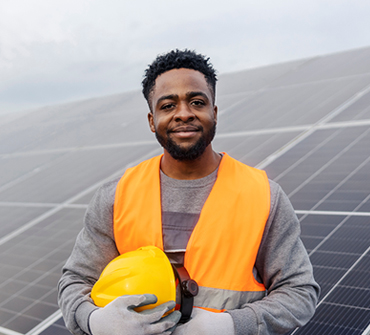
Contact
I hereby confirm that I would like to receive further information by e-mail. You can revoke your consent at any time. We explain data handling in our privacy policy.

Learn how to drive sustainability and improve energy access with small-scale solar systems and other small-scale renewable energy solutions. This renewable energy training provides practical insights into solar thermal training, photovoltaic systems, and decentralized energy solutions, equipping you with the skills to develop efficient and cost-effective projects.
Photovoltaics:
Solar thermal:
Small hydropower:
Biogas:
| Duration | 6 months | |
| Study time | About 70 hours | |
| Language | English, Spanish | |
| Dates | 01/04/2026 | |
| 2 live sessions and optional intro courses | ||
| Expertises | BioenergyPhotovoltaicsSolar thermal | |
Participants will explore the fundamentals of small-scale solar systems, solar thermal technologies, small hydro power and biogas systems. You will assess energy needs, and select the right technologies for homes, businesses, and rural electrification projects. This renewable energy training will give you both technical and economic know-how.

Learn how to drive sustainability and improve energy access with small-scale solar systems and other small-scale renewable energy solutions. This renewable energy training provides practical insights into solar thermal training, photovoltaic systems, and decentralized energy solutions, equipping you with the skills to develop efficient and cost-effective projects.
| Duration | 6 months | |
| Study time | About 70 hours | |
| Language | English, Spanish | |
| Dates | 01/04/2026 | |
| 2 live sessions and optional intro courses | ||
| Expertises | BioenergyPhotovoltaicsSolar thermal | |
Participants will explore the fundamentals of small-scale solar systems, solar thermal technologies, small hydro power and biogas systems. You will assess energy needs, and select the right technologies for homes, businesses, and rural electrification projects. This renewable energy training will give you both technical and economic know-how.

Photovoltaics:
Solar thermal:
Small hydropower:
Biogas:
Small Systems,
Big Impact.


This renewable energy course is your training ground for 4 different technologies. You will study small-scale systems used for the provision of hot water or electricity in households or in remote rural areas without access to the electricity grid:
Additionally, each participant will have access to short introductory courses on energy and electricity topics to learn or revise the basics. These courses are not mandatory, and will not be covered in the exam.

Focused on capacity building in renewable energy, solar projects, and storage solutions. Mentors green energy entrepreneurs in Africa and is currently specialising in ESG and impact investing. Brings experience in solar project development and business development across Latin America, combining technical and commercial expertise in power electronics and energy storage. Holds an MBA in International Business Management and degrees in Law and Political Science, and speaks Spanish, English, German, and French.

Manages international capacity development programmes on green hydrogen, energy transition, and Power-to-X (PtX). Designs and implements blended learning seminars on green hydrogen projects, PtX pathway assessment, grid integration, and wind energy economics. Has extensive experience in integrating renewables into the German energy system and advising government and industry on strategic energy transition topics. Holds an Engineer for Environmental Technology degree from the Technical University of Berlin.